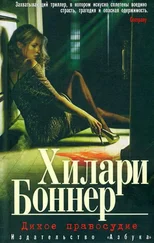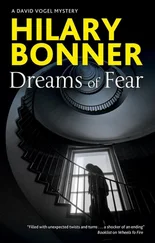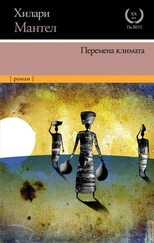This was where Carl had given me my new name. ‘You’re Suzanne from now on,’ he had told me softly. ‘Suzanne – my Lady of the Harbour.’
And as I walked alone along the harbour side, inside my head I could hear him singing to me softly from the Leonard Cohen song of the Sixties that he so loved and from which he had named me Suzanne, the song that had been so much a part of his growing up, a growing up so utterly different from my own sheltered childhood:
And the sun pours down like honey
On our lady of the harbour
And she shows you where to look
Among the garbage and the flowers
There are heroes in the seaweed
There are children in the morning
They are leaning out for love
They will lean that way for ever
I turned away from the quayside and headed towards the police station.
I was certain it would be a relief to rid myself of the burden I had carried for so long. And as I walked through the Cornish seaside town I had grown to love so much, on my way to confront the past at last, irrevocably, my thoughts turned, as they so often did, to how it had begun.
Poor Gran. All she had ever wanted was to protect me, to do her best for me. When she arranged for me to marry Robert Foster she believed she had found somebody who would love and continue to protect me just as she had done. And, of course, it did not occur to her to doubt a man of God.
Until well after the wedding I suppose I never doubted him either. I was bewildered, but not afraid. I had never had reason to be afraid of those close to me – I suppose there had only ever been Gran, really, and I expected, as a matter of course, kindness from both a husband and a clergyman. The fact that I had barely ever been alone with Robert did not particularly concern me at the time. Maybe I thought that was normal for a bride and I suppose it had been once in a bygone age. I read a lot of Jane Austen in those days and had always suspected that I might have been more at home in her time than my own. I told myself that what was happening to me was all rather romantic. I knew Robert Foster only in the way Gran presented him to me – as an intelligent and apparently kindly man, a cleric respected and revered by his congregation. But I quickly found out how wrong I was – certainly about his kindness.
When we were married in Robert’s church, with what seemed like the entire congregation gathered there, I did feel some of Gran’s pride in spite of the sense of unreality about it all. The music was rousing, people said I looked beautiful. There was something splendid about the occasion and, unused to being the centre of attention, I found I quite liked it.
My wedding night – spent in the rectory that was to be my home because Robert did not have time for a honeymoon – was painful and difficult. I knew so little about sex and had had no experience. It went without saying that I was a virgin. I hadn’t even known exactly what would happen – or how, but Robert had been patient as he could, and had allowed me to take my time, and I suppose I had expected pain. It was not until much later that I learned that, had there been more love, more arousal, rather than a clinical kind of forbearance, I might have experienced no pain at all.
After the wedding he was always busy during the day. And I realised early on that while he undoubtedly worked hard he also drank heavily, although he contrived only very rarely to appear even slightly drunk and never in public. He managed to maintain the façade of being the perfect chapel cleric in an order strongly opposed to alcohol. Extraordinary, really. I had even heard him preach from the pulpit about the evils of drink. Maybe he believed what he said, I don’t know. In a curious kind of way he had good reason to, he must have known what it did to him. Maybe that gave him a crisis of conscience – although he gave no sign of having any kind of conscience at all. I certainly believed in the evils of drink by the time Robert Foster had finished with me.
Unlike most clergymen, he preferred me not to get involved in his church-work, explaining to his congregation that I was not strong enough to be a traditional pastor’s wife. Instead, I stayed in the big, ugly old Victorian manse that was our home, twiddling my thumbs and cooking his evening meal. After that he continued working or reading in his study while I sat alone in the living room. Then he would summon me to bed – and that truly was the way it was. There was always a coldness about Robert. He never expressed any love towards me, never showed any warmth, but he was an ardent and accomplished lover, and our lovemaking was at first the high point of my long dull days. To begin with, briefly, he had indeed been a surprisingly good lover, technically at any rate. He knew how to excite a woman if he cared to do so. On a good night his knowledge and expertise even made up, at least partially, for his eternal coldness. I learned to relax my body and to switch off my mind against the emotional emptiness I was somehow so aware of, in spite of my inexperience, and to enjoy the sheer physical sensation.
Eventually I achieved my first orgasm and I think that was when I maybe even began to fall in love with Robert a little. I had no way of knowing that there could ever be more. For his part he seemed to take almost a kind of pride in bringing me so easily to a climax. He once told me he thought it was what gave man the most power of all over woman.
But after Gran died things began to change for the worse. Towards the end of her life Robert allowed me to bring her into the manse and nurse her there. Looking back, I think Gran was one of the few people in the world Robert might have been genuinely fond of – if he was indeed capable at all of any depth of human feeling. Anyway, I was grateful to him for that if nothing else. Gran was weak and terribly sick in the flesh but indomitable in the mind to the end. I loved her to pieces and so hated to see her suffer, but took comfort that I was with her, which I knew would be all that she would wish for, and that she remained without any fear of death. Looking after her filled my days, but they seemed all the more empty when Gran finally left us. And it was then that the true brutality of the man I had married began to show itself.
Gran had been dead for about three weeks when Robert hit me for the first time. It was in bed. And what he did seemed to me to be the ultimate cruelty. I had yet to learn that it was merely the beginning.
It was just like the nightmare that had continued to plague me, except that I could see his face all right and the cruel glint in his eye. We had sex as we did almost every night and although I suspected from his clumsy movements, a certain slowness in his speech and a slight glaze to his eyes that he had been drinking particularly heavily, as ever it did not affect his sexual appetite nor his ability to function. He knew where to touch me, how to excite me, how to make me cry out for more, but he did so, as always, in the cold, detached but efficient way that I had grown used to, almost as if he were conducting a biological experiment. On this terrible night he brought me to orgasm and, as I felt the pleasure overwhelm me, he suddenly raised his right hand and hit me hard across the mouth. The dream had always kept it so vivid for me, my lip cut open, tasting my own blood, then being punched in the chest, my body reeling in confusion.
Years had passed, my life had changed beyond recognition, yet as I turned my back on the harbour I loved so much, the seagulls wheeling above my head, I could still feel the dreadful pain and the humiliation of it.
He had grasped my right arm and forced it back on the pillows at an angle so agonising that I believed my wrist would break. All the time I was aware of his excitement rising to a level beyond anything I had felt in him before. He kept on hitting me as he began to come and I had instinctively known that it was the most extreme orgasm he had ever had with me. By the time he had finished I felt like a punchbag.
Читать дальше












